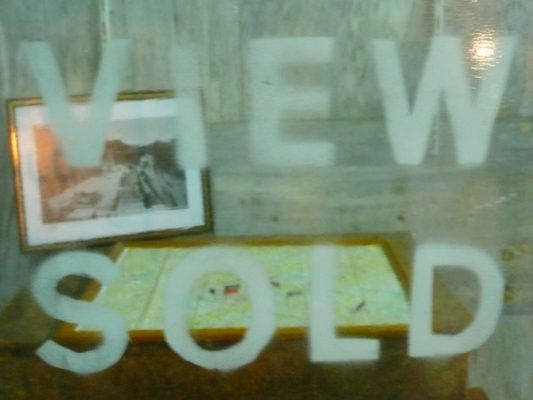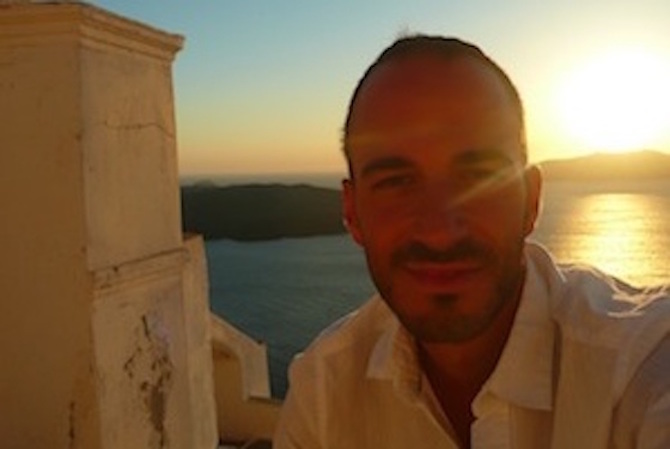Search
To search for an exact match, type the word or phrase you want in quotation marks.
A*DESK has been offering since 2002 contents about criticism and contemporary art. A*DESK has become consolidated thanks to all those who have believed in the project, all those who have followed us, debating, participating and collaborating. Many people have collaborated with A*DESK, and continue to do so. Their efforts, knowledge and belief in the project are what make it grow internationally. At A*DESK we have also generated work for over one hundred professionals in culture, from small collaborations with reviews and classes, to more prolonged and intense collaborations.
At A*DESK we believe in the need for free and universal access to culture and knowledge. We want to carry on being independent, remaining open to more ideas and opinions. If you believe in A*DESK, we need your backing to be able to continue. You can now participate in the project by supporting it. You can choose how much you want to contribute to the project.
You can decide how much you want to bring to the project.

In times of financial crisis culture is one of the first areas that suffers the so-called “cuts”. We’ve seen it here in Spain, with several museums and artists struggling to make ends meet. Greece is no exception. For one of the countries hardest hit financially, culture couldn’t be at the top of the government’s agenda. Fortunately, however, the organizers of ReMap 4 thought otherwise. This time round, the cultural event, this year in its fourth edition, seemed to be taking place not despite the crisis but because of it. The organizers felt the need to address the issue through the art presented and their decision should be an inspiration to all of us and make us realize that art can often be a refuge, a dialogue, a manifesto, a protest or even a solution.
The current crisis has also become a political one, a social crisis and undoubtedly an existential one. Under these circumstances a large part of Greek society has come to question its identity and is endeavouring to (re)define itself. Or at least it should. ReMap 4, a contemporary art platform which brings together mostly up-and-coming international galleries, artists and curators, took over the public sphere of Athens from 8 to 30 September and transformed, commented upon and complemented the urban landscape of the Kerameikos and Metaxourgio neighbourhoods.
Within the country’s current socio-political context, ReMap 4 revisited the problems the country is facing and re-presented them, in some cases through an artistic lens and in others in a rather raw and undisguised manner. Such is the case of the works by Stelios Karamanolis, whose portraits of his grandfather, a WWII hero, act as a memento for a figure known to him only through stories and photographs; portraits which at the same time, according to the artist himself, are the material manifestation of the metaphysics of life. This attempt reveals a longing or search for a lost identity or perhaps a certain nostalgia for someone the artist never met but has somehow idolized. Other works such as the ones by Bill Balaskas, Iam Law or Hanna Liden reflect the volatile socio-political situation, acting as a map of the decaying psychological and material state.
Parallel to the social critique it exercised, ReMap 4 also approached matters of what could be considered a more artistic nature. Such is the case of the exhibition-within-the-exhibition In the Studio, which was presented in the Kunsthalle Athena, where 41 artists and their artworks went back to the one of the most fundamental moments in the entire art process: the genesis of the artwork. In the Studio looks into the factors and stages of an artwork, from the time of its conception, the dynamics of the artist´s studio and even its sanctity. By looking at models, maquettes and unfinished artworks the visitors sensed the timely dimension of this process while viewing the material object still in the process of being (re)shaped, a state of flux that is also currently being experienced by Greek society.
Overall we could view ReMap 4 as a metaphor for the physical and psychological state of an entire society, a sketch of the material ruins of the Athenian neighbourhoods but also of the ethos and emotional stamina of Greeks, whose routine has been transformed into a daily struggle for survival. We could identify recurring themes of life and death, decay and resurrection throughout the exhibition and one couldn’t help but wonder if these themes are the answer to the country’s fate. In the end in this particular context maybe it all boils down to the issue of identity. What’s happening to Greek society? Who is the modern Greek? Just like Wesley Martin Berg’s paintings, today’s citizen (it is an international issue after all) is a modern day hobo, an amalgam of past notions of the hobo – free however of his once bohemian flair and seductive character – and its contemporary condemnation to being a slave to desire and political and financial plots. No wonder it’s high time to pose the question: “Who am I? What am I?” It might be almost impossible to define exactly what art is but in this case art itself might at least help us redefine our identity.

Filippos Analitis is one of those people who enjoys pursuing strange combinations, like studying mathematics and art history. He really enjoys a good exhibition and has no doubts about travelling to find one. Likewise for contemporary dance and the piano. It’s clear that his other great passion is travelling. He also really enjoys a fine wine, a sunny terrace and hanging out with friends. Specialised in modern and contemporary art, he enjoys allowing it to surprise him.
"A desk is a dangerous place from which to watch the world" (John Le Carré)